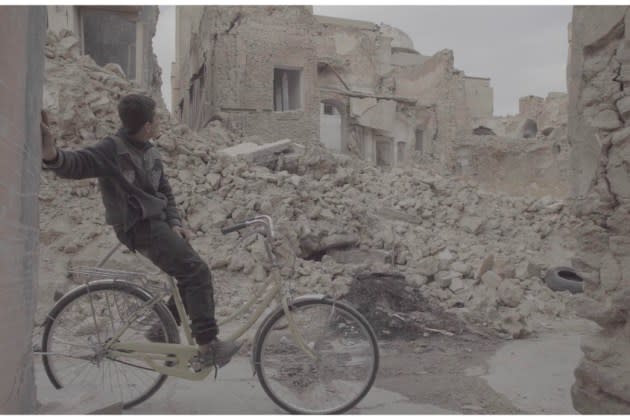Afghan Director Aboozar Amini Talks Returning to IDFA With Sequel to ‘Kabul, City in the Wind’ (EXCLUSIVE)

Five years after opening the International Documentary Film Festival Amsterdam with his feature debut “Kabul, City in the Wind,” Afghanistan-born, Netherlands-based filmmaker Aboozar Amini returns to IDFA to present his latest, “Kabul, Year Zero,” at the festival’s industry section, Forum.
The choice to return to IDFA was an obvious one to Amini and frequent collaborator Jia Zhao of Silk Road Film Salon, who is co-producing “Kabul, Year Zero” alongside Julia Niethammer for Chromosome and Heejung Oh for Seesaw Pictures. Speaking exclusively to Variety, Zhao said, “It was a very conscious choice to get back to IDFA because Aboozar’s first project was here, and to have had a first feature be seen by so many people — many of whom still have some fresh memories of it — was special to us. Of course, IDFA still had to choose us, but the Forum always had priority.”
More from Variety
“For me, seeing people’s reactions to the project is the most important thing,” said Amini when asked about presenting the project at the festival’s market. “Because once you are all the way into the process of making the film, it can be hard to grasp how it comes across to others and that is essential to me in the filmmaking process.”
“Kabul, Year Zero” continues to trail the subjects of Amini’s previous film, young people zigzagging through a world shadowed by suicide bombings and violent conflicts. On top of the boys introduced in “Kabul, City in the Wind,” the director will also tell the stories of young people in other war-torn countries such as Iraq and Ukraine.
Working on a follow-up to his first feature was not always in the cards for the filmmaker, who says “Kabul, Year Zero” happened by “itself.” “I was not planning on making another film with the same protagonist but when the U.S. military left Afghanistan disastrously, it was incredibly hard to digest the pain and the loss. The film was a creative way to calm myself down.”
“I started going through materials I didn’t use in my previous film,” he continues. “That was a meditative process for me, to just be able to express my emotions about the loss of all these people in Afghanistan. In that regard, the film was happening by itself and I was just following where it led me.”
Amini is a firm believer in the importance of telling the story at the center of his film and finding the humanity that often lies buried under the impersonal numbers shared on the news. “Children are dying by war and we only hear the numbers. A number of children got killed in Palestine, more in Ukraine, Afghanistan and Iraq, and we forget about them. Our aim is to make the audience experience these children’s lives and to see them for who they are.”
“And it’s also about killing in a much broader sense,” interjected Zhao. “When you no longer have a mother, father or a home, these are other forms of death. It’s the absence of the most important parts of your life, suddenly taken away from you. That can be even worse than dying.”
“We started the film before the war in Ukraine and now we have the war in Palestine,” said director about working on his film at this particular moment in time. “It will never stop. This is why we have become so much more determined to continue what we are doing, even if it’s just a small contribution, even if it’s such a small story about kids. It can be small, but it is essential.”
Best of Variety
Sign up for Variety’s Newsletter. For the latest news, follow us on Facebook, Twitter, and Instagram.
